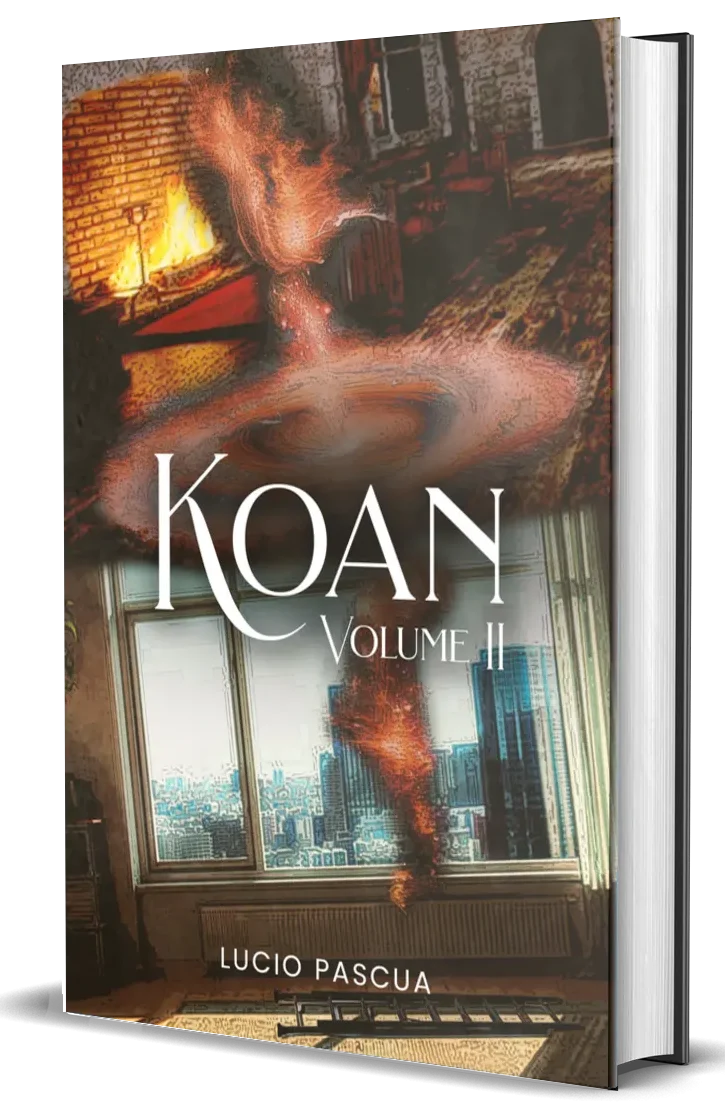What makes a world believable isn’t always the battles fought or the cosmic mysteries unveiled; it’s the small, everyday details that remind us of our own lives. In Lucio Pascua’s KOAN, a novel that blends myth, philosophy, and speculative fantasy, the extraordinary is grounded in the ordinary. Candles flicker in quiet homes, music drifts through chambers, and meals simmer in kitchens while cosmic guardians debate the fate of the universe. These everyday rituals bring balance to the book’s expansive scope, reminding us that even in a multiverse of possibilities, it’s the intimate rhythms of daily life that make us human.

One of the most striking aspects of KOAN is the way Pascua anchors its cosmic narrative in sensory detail. For instance, scenes filled with the glow of candlelight do more than set the mood. They symbolise knowledge, guidance, and the warmth of community. In a world where destinies are debated by mythical beings like the Northern Tortoise and Eastern Dragon, the act of lighting a candle becomes an affirmation of continuity, of ordinary people holding onto hope amid the vast unknown.
Food, too, plays a quiet but powerful role in the novel. Meals shared in homes or around fires remind us that nourishment is more than survival. It is a connection. A bowl of soup or the aroma of simmering stew brings characters together, bridging gaps between individuals caught up in struggles of philosophy, politics, or fate. These scenes echo our own lives, where the ritual of sharing a meal often becomes a moment of pause, a way to find comfort in the company of others. In KOAN, food becomes a language of love and belonging, even when chaos looms outside.
Music also threads its way through the story, underscoring its emotional and philosophical weight. Songs and chants, whether performed in ritual or casually hummed, serve as touchstones for memory and meaning. They evoke joy, grief, and determination, reminding both characters and readers that art is as vital as logic in navigating the complexities of life. In a world so concerned with cosmic balance, music becomes a ritual of harmony, a reminder that not all order is imposed; some is created through shared expression.
What makes these rituals so compelling is that they exist alongside the grandeur of the novel’s metaphysical themes. While KOAN explores questions of destiny, peace, and moral responsibility, it never loses sight of the smaller practices that shape lives. This duality, the vastness of the cosmos alongside the intimacy of daily rituals, is what gives the book its resonance. Readers are encouraged to see that greatness isn’t only in heroic deeds or philosophical insights, but also in the quiet persistence of living with care.
This balance has parallels in films like Pan’s Labyrinth, where fantastical elements intertwine with the routines of family and survival, or The Green Knight, which pairs mythic quests with moments of stillness and reflection. Like these works, KOAN uses extraordinary settings to highlight ordinary rituals, showing us that the human experience is built on both the cosmic and the commonplace.
By the end of KOAN, readers are left with a powerful truth: even in a universe of guardians, villains, and infinite possibilities, what grounds us are the rituals we return to, lighting candles, sharing meals, singing songs. These acts may seem small, but they are what make worlds, both fictional and real, worth living in.
Read Lucio Pascua’s KOAN, available on Amazon: https://www.amazon.com/dp/B0FHDQN2C1.